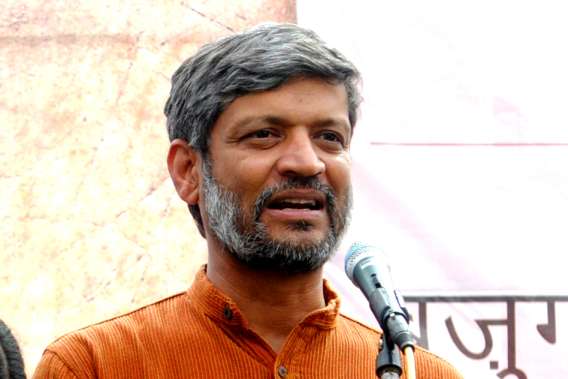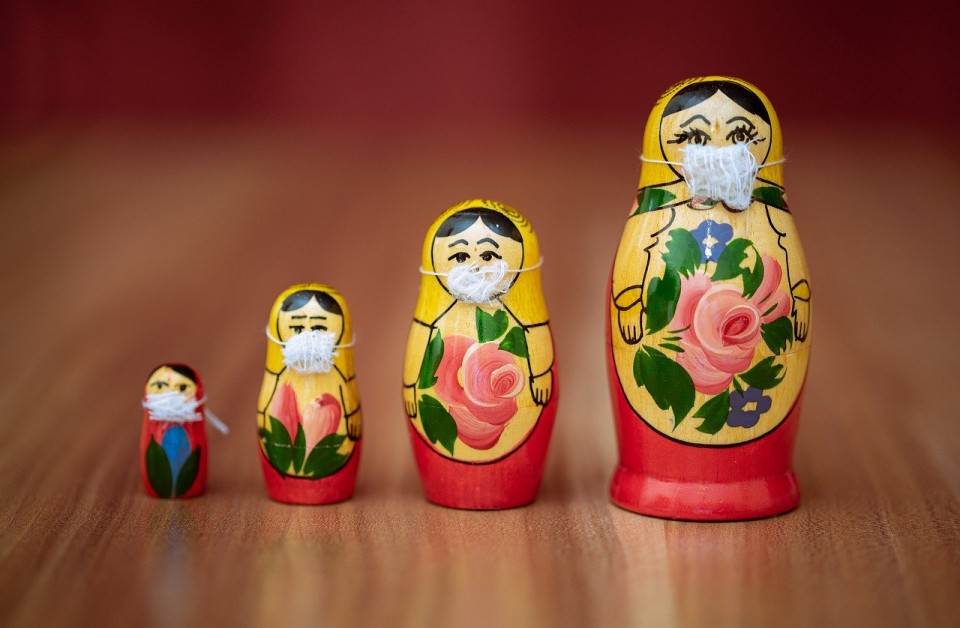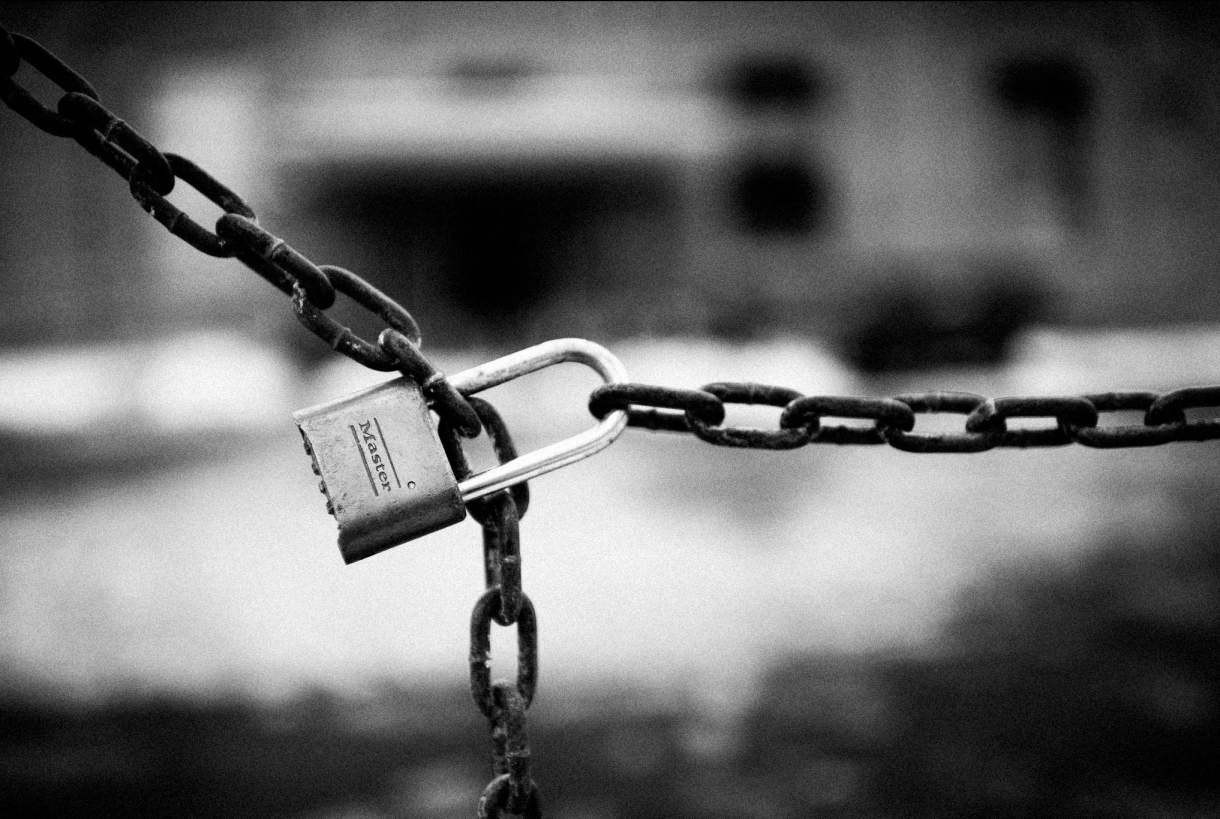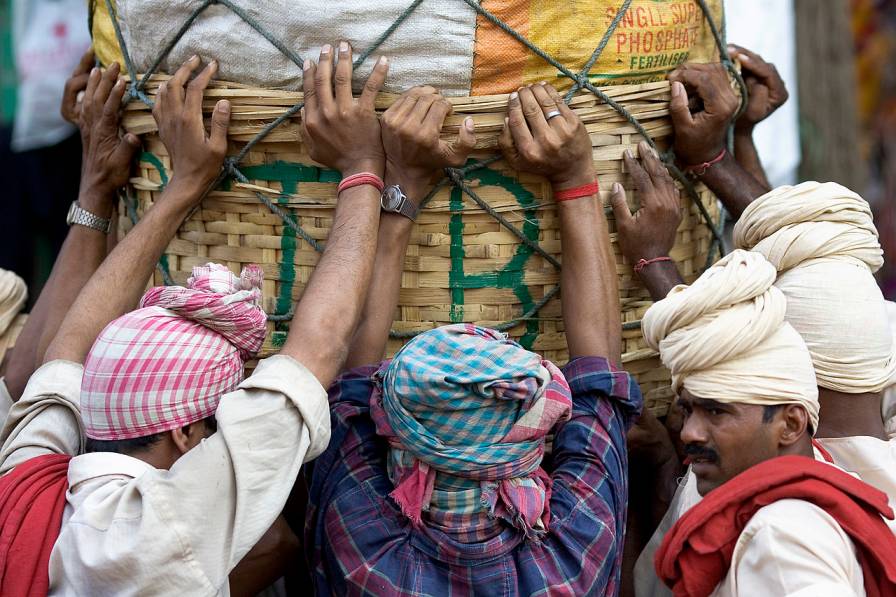The ongoing COVID-19 pandemic has shown us something that most of us haven’t seen in our lifetimes: Large numbers of people unable to have two meals a day.
The tragedy is that the government has enough and more foodgrains to feed people during this time; the real issue is of distribution—both in terms of broken supply chains, as well as the insistence of the government to limit distribution to beneficiaries under the National Food Security Act (NFSA), ie, priority ration card holders. This approach is flawed because the NFSA has many exclusions, with some of the poorest of the poor, nomadic or Adivasi communities, and the urban poor being left out. Moreover, ration cards are of no use to migrant workers stuck outside their home state.
There are similar issues of exclusion in other services as well, such as livelihoods and healthcare. This is where civil society must step in—to put pressure on the government to universalise these services.

We, at the Mazdoor Kisan Shakti Sangathan (MKSS) and through many networks, have been petitioning the government to distribute foodgrains to everyone, and we need to apply this kind of pressure at a larger scale. We’ve seen this work in the past, in the case of programmes such as NFSA (that focuses on food security) and the Mahatma Gandhi National Rural Employment Guarantee Act (NREGA)—both these were a result of consultative processes between the government and civil society. In fact, these rights-based legislations are providing us with the framework for public service delivery during this crisis, and they need to be effectively enhanced.
If the government does not listen, we have to make them listen.
Therefore, if the government does not listen, we have to make them listen. I believe the people of this country know how to engage with the government—even when we disagree with our leaders, or they don’t listen to us. We live in a constitutional democracy, and the mantle therefore lies with citizens and civil society organisations to put pressure on the government, and to recreate society on the principles of equality, respect, and solidarity. In the short term, this means that we need to build a national movement to ensure that everyone gets access to food, livelihood, and healthcare.
But how can we do this, given the urgency of the situation and the restrictions that have come with it? What is our role in this massive national exercise to ensure that every citizen of the country has food to eat, quality health services, and livelihood opportunities? I believe there is plenty we can do.
Related article: It is time to revisit how civil society engages with politics
Build a network of civil society
Civil society will have to build a network that cuts across the country. We will need to map the different organisations and groups providing relief in every district, block, and down to every village. We can do this because we have volunteers and workers—from field staff of nonprofits to government school teachers—all over the country, and we know whom we can contact for any information or assistance at any place.

The strength of civil society lies in knowing and being the small, decentralised units that have taken responsibility for their entire area—identifying the number of people in the area, the relief needed, the gaps in government relief, the challenges on the ground, and so on. By bringing them together and forming a network, we can enable these units to call upon each other for assistance, such as procuring material or rebuilding supply chains. Most importantly, the network can have a voice at the national-level that says everyone is entitled to benefits, even if they are not ration card holders or active workers under NREGA.
Stand in solidarity with those delivering essential services
COVID-19 is a high-risk disease, and we need to be very careful; but we cannot simply lock ourselves in our homes, because then those who are most vulnerable will not survive. Essential services absolutely have to continue. We have to build systems and mechanisms for safe delivery of services, and public servants have to be motivated, and given economic and moral support. Even though this has to be primarily done by the government, civil society organisations have a huge role to play as well.
For instance, we need to stand in solidarity with those who are currently delivering these services—frontline health workers, sanitation workers, people running ration shops and kirana stores, those making home deliveries of goods, and so on. We have to understand their problems and put pressure on the government to support them. The Delhi government recently announced insurance of INR 1 crore for frontline workers. That is the kind of security we should demand for every individual delivering services in this period. We have to build a movement around them.
These essential jobs could also be the answer to protecting the livelihoods of the poor during this time, by creating a fallback public works programme, unprecedented in scale. Civil society can demonstrate this model to the government. We need to chart the vital services required today, such as delivering rations and caregiving, and show to the government how people can be employed in these roles. This will not only help communities affected by the pandemic, but the mechanism of doing so might help others in turn.
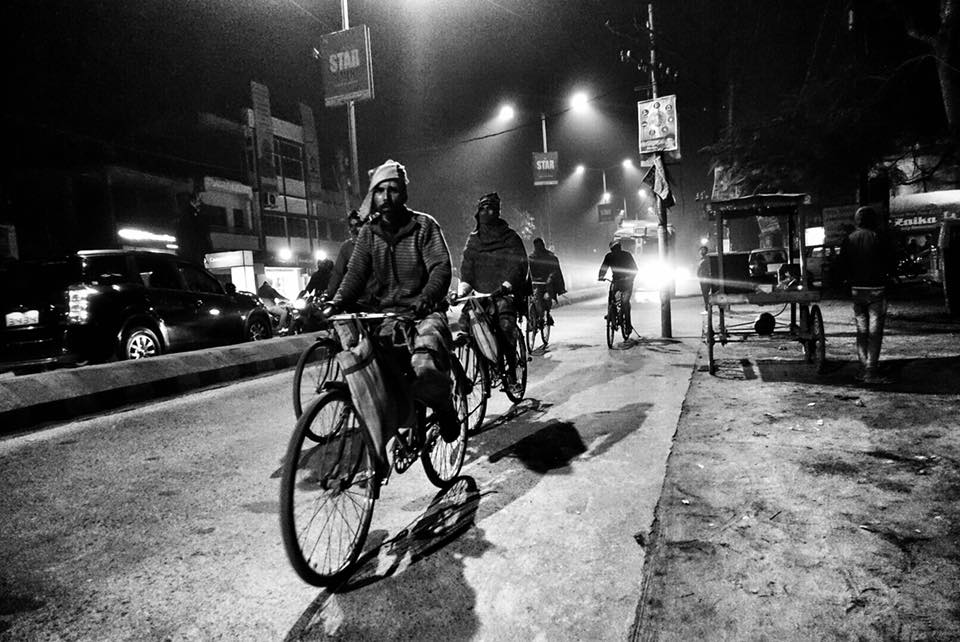
This is an opportunity for civil society to highlight the plight of migrant labourers that existed even before the pandemic. | Picture courtesy: Anand Sinha
Continue social movements in innovative ways
We might not be able to organise rallies or protests during the lockdown, but social movements must not stop finding ways to mobilise public opinion. When the lockdown first happened, we filed a case in the Supreme Court to say that all active workers under NREGA should be given wages for all 21 days. The case is being heard via video conferencing. So, we have to explore all options that help put pressure on the government.
We can engage with the state, send press notes, exchange information within our networks of civil society organisations, and document what’s happening on the ground. This way, we can raise issues at the state- and national-level. There are restrictions everywhere, but we cannot stop. We have to be innovative.
We must recognise the contribution of migrant workers, and build respect for them and their work—not as a favour, but as a means to empower them.
Civil society leaders and activists must also continue writing for newspapers and alternative media to highlight the situation of the most vulnerable, and do it in a more organised way, by taking the unheard voices and disseminating them using our networks. These must not just be confined to stories of suffering, but include positive stories and creative practices as well—of people working together despite socio-economic differences. Civil society can also help advocate that best practices in one state be replicated in others.
This is an opportunity for civil society to highlight the plight of migrant labourers that existed even before the pandemic—their work and living conditions, the insecurity of work, and the fact that they have no real social support from the state. We’ve heard people say that they didn’t realise that the migrant workforce is the backbone of our economy. Therefore, in addition to looking after their welfare and security, we must recognise their contribution, and build respect for them and their work—not as a favour, but as a means to empower them.
Many civil society organisations have been working with domestic workers, industrial workers, mine workers, street vendors, or other informal sector workers, but we haven’t managed to get them together and build them into the potent, powerful force that they could be. Perhaps now is the time for us to do that.
This is also an opportunity for civil society to counter the communal narrative that took over the country a few weeks ago. By taking the lead in organising multifaith relief efforts and highlighting positive stories of unity across religious lines, we have to show that the only way to overcome this crisis is by working together. We need to demonstrate compassion and care at this time, and shift the focus of politics to those values.
Related article: Is sustainable development possible without an accountable government?
Work with the government
The role of civil society does not stop at putting pressure on the government. There are many areas that the government is unable to reach; we have to reach there. We have to use our transparency and accountability mechanisms to monitor the government’s work and make sure state resources are well-used. We also need to proactively find the gaps, and help fill those gaps.
The government structure is working well in some areas and not working in others. In some of those places, the government is itself asking for our help. Given the enormity of the intervention required, the government cannot do it on its own, and civil society cannot replace the vast role of the government in facing this crisis. While civil society organisations can take responsibility for one area and fully ensure the well-being of the people there, we must also work with local governments, help people access relief measures down to every rural and urban ward, and fill the gaps in the government’s response. Panchayats and local self-governments also have a very big role to play in this effort.
How much attention we pay to the millions who have been worst affected by COVID-19 and the lockdown will determine whether or not we come out of this crisis.
Apart from this, each one of us needs to think hard of the ways in which we can contribute. As individuals, we can immediately start looking at those around us—in our villages and our localities. Some of us can provide economic resources to plug the government’s gaps; others can take up the job of distribution. Individuals can also devote their time and join campaigns. There needs to be a concerted campaign for instance, to use the excessive foodgrain stocks to universalise the PDS, at least for the next few months. We also need to support the demand for an enhanced employment guarantee programme for rural and urban areas. We don’t realise how powerful the middle-class, English-speaking elite in India is; if they raise their voice enough, we will see improved situations around us.
And lastly, let us not forget democracy at this time—the right to speak, the right to challenge, the right to argue—because today, the only thing millions of poor people have is a voice. We need to amplify that voice to ensure that the most vulnerable get the most support, and those who are affluent only get something if it helps the most vulnerable. How much attention we pay to the millions who have been worst affected by COVID-19 and the lockdown will determine whether or not we come out of this crisis.
The article is based on Nikhil’s online discussion with the team members of Azim Premji Philanthropic Initiatives, Azim Premji University, and Azim Premji Foundation.
—
Know more
- Read this article by Nikhil Dey on the need for an open-ended, expanded, employment guarantee scheme at minimum wages to deal with the consequences of the lockdown.
- Explore how the peoples’ movements can build solidarity to demand rights in the times of COVID-19, through lessons from the MKSS.
- Learn more about the deaths occurring across the country that are not attributed to the COVID-19 virus but are related to it, such as those due to suicide, lathi charge, hunger, and so on.
Do more
- Donate to your nearest nonprofit or civil society organisation who is working to alleviate the distress of migrants and other vulnerable groups.
- Join the ‘Use RTI, Demand Accountability’ campaign to hold the state accountable across issues of concern. For more information, contact Asmi at asmixsharma@gmail.com.

